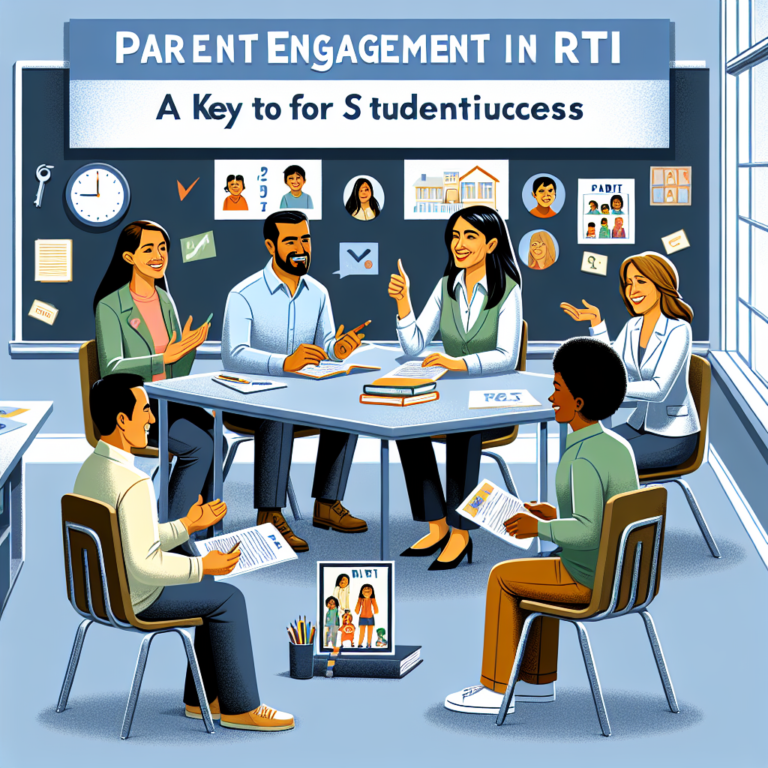
Introduction
In the complex landscape of educational and developmental support, understanding the assessment process can feel like navigating a maze. Whether you’re a parent seeking additional resources for your child or a student desiring greater self-awareness, knowing the ins and outs of psychoeducational evaluations is essential. Navigating the Assessment Process: What Families Need to Know About Psychoeducational Evaluations will provide you with the insights, tools, and knowledge to confidently guide your family through this often-intimidating journey.
With the right understanding, families can advocate for their children’s needs effectively, ensuring that the right educational supports are in place. This article aims to demystify the psychoeducational evaluation process, providing families with actionable insights, real-world applications, and answers to common questions.
Understanding Psychoeducational Evaluations
What Is a Psychoeducational Evaluation?
A psychoeducational evaluation is a comprehensive assessment designed to understand a child’s cognitive, academic, and emotional functioning. It typically includes IQ tests, achievement tests, and behavioral assessments, providing a holistic picture of the student’s strengths and weaknesses.
Table 1: Components of a Psychoeducational Evaluation
| Evaluation Component | Description |
|---|---|
| Cognitive Testing | Measures intelligence and learning potential. |
| Academic Assessment | Assesses reading, math, writing, and other academic skills. |
| Behavioral Measures | Evaluates emotional and behavioral functioning. |
| Observation | Offers insights into the child’s behavior in different settings. |
Why Are Psychoeducational Evaluations Important?
Navigating the Assessment Process: What Families Need to Know About Psychoeducational Evaluations entails understanding their importance. These evaluations help identify learning disabilities, attention disorders, and other challenges. Armed with this information, educators and families can formulate tailored strategies that enhance the learning environment.
Case Study: The Impact of Early Assessment on Learning
Consider the case of a third-grade student, Hannah. After struggling with reading, her parents opted for a psychoeducational evaluation. The results indicated a specific learning disability in reading. With this knowledge, her school implemented targeted interventions, leading to significant improvements in her academic performance.
The Assessment Process: Step by Step
1. Referral and Consent
The journey begins with a referral, which can be made by a teacher, counselor, or parent. Consent is necessary before any evaluation can occur. Understanding the consent process is crucial for families wishing to advocate for their children’s needs.
2. Choosing the Right Professional
Not all psychoeducational assessments are created equal. Families should seek out licensed psychologists or specialized educational professionals with the necessary experience. This choice can significantly impact the evaluation’s effectiveness.
3. The Evaluation
During the evaluation, expect to see a combination of tests administered in either a one-on-one or group setting. The process often lasts several hours and may take place over multiple sessions.
4. Report and Meeting
After the evaluation, a detailed report will be generated. This report includes findings, recommendations, and how they might affect educational planning. A follow-up meeting is essential for discussing the results with educators and forming an action plan.
Chart 1: Overview of the Assessment Timeline
| Step | Duration |
|---|---|
| Referral | 1-2 weeks |
| Evaluation Scheduling | 2-4 weeks |
| Evaluation Process | 2-6 hours |
| Report Preparation | 1-2 weeks |
| Follow-Up Meeting | 1-2 weeks |
Case Study: Transition Planning Post-Evaluation
Ryan, a middle school student, underwent a psychoeducational evaluation that revealed challenges with executive functioning. As a result, his school created an Individualized Education Program (IEP) tailored to his needs, incorporating both academic accommodations and life skills training. This proactive approach enabled him to transition smoothly into high school.
Common Concerns and FAQs
FAQ 1: What if I disagree with the evaluation results?
Disagreements can be contentious. Families have the right to request a second opinion or additional evaluations. Engaging in open dialogue with professionals can often resolve concerns.
FAQ 2: How much do psychoeducational evaluations cost?
Costs vary based on location and professional expertise. Many school districts offer assessments at no charge, but private evaluations can range from $1,500 to $3,000. Insurance coverage is also worth investigating.
FAQ 3: How long does the entire process take?
From referral to recommendations, navigating the assessment process typically takes anywhere from a few weeks to several months. Planning ahead is beneficial for families eagerly awaiting results.
FAQ 4: Will a psychoeducational evaluation help my child?
While it may not guarantee immediate solutions, the insights gained can effectively inform educational strategies, helping children succeed academically and emotionally.
FAQ 5: Are psychoeducational evaluations only for children with learning disabilities?
No, they can benefit any child experiencing academic challenges, social-emotional difficulties, or needing a clearer understanding of their educational strengths.
Common Mistakes Families Make
1. Underestimating the Importance of Preparation
Families often do not prepare adequately for the evaluation. Knowing what to expect can alleviate fears and promote a smoother experience. Preparing questions in advance can also lead to a more productive follow-up meeting.
2. Lack of Follow-Up
Once the evaluation is complete, families may neglect follow-up discussions. Continuity in communication with educators and evaluators is critical for effective implementation of recommendations.
3. Focusing Solely on the Diagnosis
While a diagnosis can be illuminating, it’s essential to focus on actionable strategies and support systems rather than merely labeling the child.
Strategies for Effective Advocacy
Building a Support Network
Creating a robust support system, including educators, psychologists, and fellow parents, aids in navigating the assessment process. They can offer valuable expertise and emotional backing.
Staying Informed About Rights
Understanding educational rights and protections under laws such as the Individuals with Disabilities Education Act (IDEA) empowers families. It helps in advocating for the appropriate services needed for their child.
Emphasizing Open Communication
Establishing lines of communication with teachers and school administrators encourages collaboration. Sharing insights gained from the evaluation fosters a more comprehensive understanding of the child’s needs.
Conclusion
Navigating the Assessment Process: What Families Need to Know About Psychoeducational Evaluations empowers families to advocate for their children effectively. By understanding the nuances of evaluations, families can utilize the insights gained to implement tailored educational strategies, advocate for support, and ensure their children thrive academically and emotionally.
The key takeaway is this: knowledge is power. Equip yourself with the information you need, foster open communication, and create a support network to guide your family through this crucial process. Your child’s educational journey deserves attention and care, and with the right tools, you can navigate it successfully.
Additional Resources
For further reading, families are encouraged to explore the following resources:
- National Association of School Psychologists (NASP): Provides information and guidance on psychoeducational evaluations.
- Understood.org: Offers an array of resources focused on learning and attention issues.
By embracing the journey of navigating the assessment process, families not only advocate for their children’s educational needs but also nurture their overall well-being. Remember, every step you take is a step toward a brighter academic future for your child.















